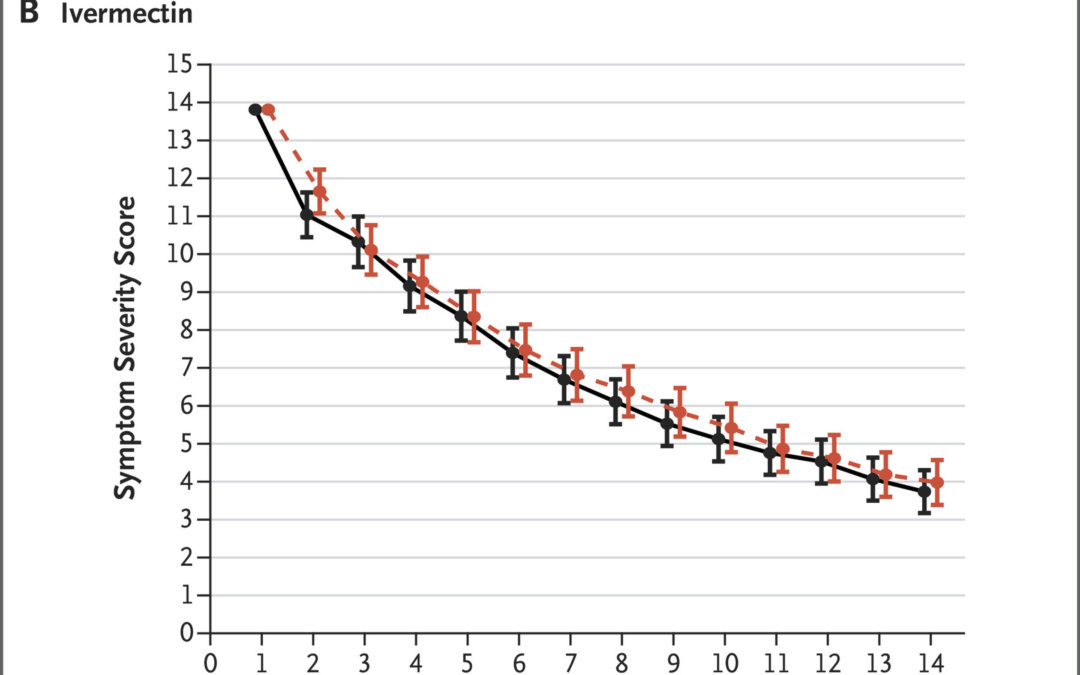August 31, 2022
In a recent article in NEJM that appeared this month, researchers conducted a double-blind randomized placebo-controlled trial of metformin, ivermectin, and fluvoxamine to study their effectiveness against outcomes related to COVID-19. They used a 2×3 factorial design approach in this study of non-hospitalized adults who had been enrolled within 3 days after a confirmed diagnosis of infection and less than 7 days after the onset of symptoms. The patients were between the ages of 30 and 85 years, and all of them were classified as either overweight or obese. The primary composite end point was hypoxemia (≤93% oxygen saturation on home oximetry), emergency department visit, hospitalization, or death. The study used controls who had undergone concurrent randomization and were adjusted for SARS-CoV-2 vaccination and receipt of other trial medications.
The main effect of each trial drug on the primary end point was estimated with the use of logistic regression after adjustment for other trial-drug assignments and SARS-CoV-2 vaccination status. All analyses were performed with the use of concurrently randomized controls only. The control group for each drug of study consisted of patients who had been enrolled when the trial drug had been available. The authors reported that missing data for primary end points and vaccination status were multiply imputed with the use of chained equations and predictive mean matching. Apparently using this method of filling in missing data has been becoming competitive with more traditional imputation strategies.
The authors tested for statistical significance using a LRT and significance level of 0.05. However, they claim since they had no prespecified plan to adjust for multiple testing, that they reported results of secondary analyses with point estimates and 95% confidence intervals without P values, but that since the confidence intervals had not been adjusted for multiplicity to not trust their inference for “definitive treatment effects”. Besides using logistic regression for the primary outcomes, they also assessed symptom severity using generalized estimating equations after adjustment for baseline symptom severity, receipt of other trial medications, and SARS-CoV-2 vaccination status. Missingness of data in daily symptom logs was approximately 25% across symptoms and was not imputed. All analyses were performed with the use of R software, version 4.1.
They found that a primary event (hypoxemia, emergency department visit, hospitalization, or death) occurred in 333 of 1305 patients with complete data (25.5%); of these patients, 134 of 686 (19.5%) were vaccinated, as compared with 199 of 615 (32.4%) who were unvaccinated. They reported an adjusted odds ratio for a primary event was 0.84 (95% confidence interval [CI], 0.66 to 1.09; P=0.19) with metformin, 1.05 (95% CI, 0.76 to 1.45; P=0.78) with ivermectin, and 0.94 (95% CI, 0.66 to 1.36; P=0.75) with fluvoxamine. The adjusted odds ratio for emergency department visit, hospitalization, or death was 0.58 (95% CI, 0.35 to 0.94) with metformin, 1.39 (95% CI, 0.72 to 2.69) with ivermectin, and 1.17 (95% CI, 0.57 to 2.40) with fluvoxamine. For hospitalization or death, the adjusted odds ratio was 0.47 (95% CI, 0.20 to 1.11) with metformin, 0.73 (95% CI, 0.19 to 2.77) with ivermectin, and 1.11 (95% CI, 0.33 to 3.76) with fluvoxamine.
The authors had summarized these results as if there were no positive effects from any of the drugs on improving visits to the ER, hospitalization, or death. However, metformin seemed to have some beneficial effect on these outcomes. Another major confounder in the study was the fact of having a mix of people in treatment or control groups who were vaccinated. This would surely further confound finding any differences in performance of any of the drugs considered in improving the morbidity or mortality from COVID-19.
Written by,
Usha Govindarajulu
Keywords: COVID-19, statistics, metformin, ivermecitin, fluvoxamine, oxygen saturation, hospitalization, death,
References
Bramante, CT, Huling, JD, Tignanelli, CJ, Buse, JB, Liebovitz DM, Nicklas, JM, Cohen K, Puskarich MA, Belani, HK, Proper JL, Siegel LK, Klatt NR, et al., for the COVID-OUT Trial Team. “ Randomized Trial of Metformin, Ivermectin, and Fluvoxamine for Covid-19”. New England Journal of Medicine, 387: 599-610.
https://www.nejm.org/doi/full/10.1056/NEJMoa2201662?query=featured_coronavirus
